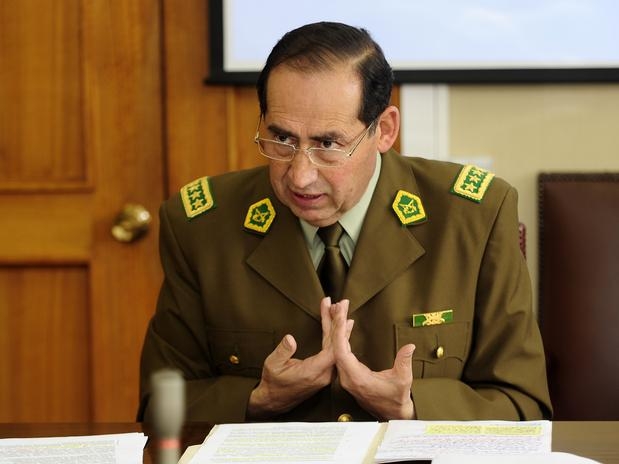The head of Chile’s national anti-narcotics police has been removed from his position and over 100 cases of possible police corruption investigated following the arrests of four officers on drug trafficking charges, demonstrating Chile’s tough stance on corruption compared to neighboring countries.
On November 27, Gustavo Gonzalez, the national director of the Carabineros — Chile’s national police — ordered the reassignment of anti-drug chief Colonel Carlos Hidalgo, reported EFE. Hidalgo was removed from his position with the OS-7, Chile’s anti-narcotics units, and transferred to the unit in charge of missing persons and vehicles.
The replacement came a day after the arrest of four Carabineros officers in the northern region of Arica. The four, among them the regional OS-7 director, stand accused of orchestrating the passage of multiple drug consignments totaling more than one ton of marijuana from Bolivia into Chile.
Following the arrests, the Arica attorney general’s office opened an investigation into more than 100 cases that could potentially uncover links between officers and drug trafficking, reported La Tercera.
InSight Crime Analysis
Along with Uruguay, Chile ranks as the least corrupt nation in Latin America, according to Transparency International’s Corruption Perception Index. However, with the country’s increasing role in the transnational drug trade — with drugs moved from Peru and Bolivia both to feed the large domestic market and for export — corruption is likely to become a growing issue.
SEE ALSO: Coverage of Chile
In this context, the Chilean authorities’ swift reaction is a positive sign, demonstrating a willingness to take decisive action and a determination not to allow drug trafficking to erode public institutions. This stands in stark contrast to other countries around the region, where the involvement of security forces in drug trafficking is frequently tolerated or ignored, and in many places is not even an impediment to rising through the ranks and continuing a successful career.
If Chile can effectively halt the spread of corruption, then it greatly increases the chances of new security initiatives stemming the flow of drugs, making it far more likely it can continue to be a relative haven from the drug-related violence plaguing much of the region.

